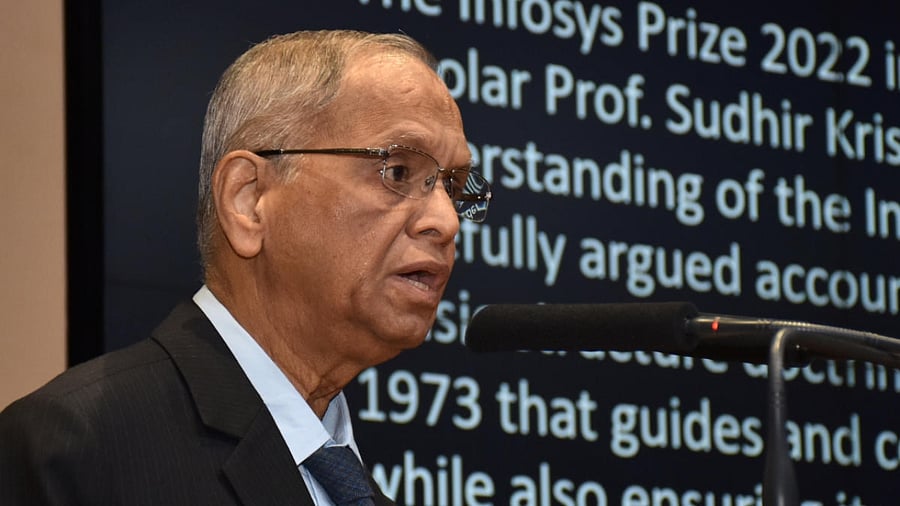
Infosys founder N R Narayana Murthy (NRN) said on Tuesday that the success of India’s efforts to foster impactful research and innovation will depend on its ability to discard rote learning.
He was speaking at an event hosted by the Infosys Science Foundation to announce winners of the annual Infosys Prize.
“The first component (for success in research) is to reorient our teaching in schools and colleges towards Socratic questioning and relating what the students learn in the classroom to the real-world problems around them, rather than passing the examinations by rote learning,” he said.
Murthy said even the IITs are suffering due to “the tyranny of coaching classes” and said the second critical component in the switch to a better research ecosystem was the ability of researchers to focus on solving immediate problems.
India, while on a “healthy run” in scientific and technological progress, is still facing challenges.
“There is not a single Indian institution of higher learning in the top 250 of the world university global ranking that was announced in 2022. Even the vaccines we have produced are either based on technology from advanced countries or based on research from the developed world,” he said.
Murthy pointed out that India was yet to produce a vaccine for dengue or
chikungunya.
‘Unimaginable shame’
He said experts were of the opinion that India’s inability to use research to solve its “immediate, pressing problems” was due to a failure in inculcating a culture of curiosity, the disconnect between pure and applied research, inadequate research infrastructure, and insufficient grants and incentives.
“The death of 66 children in Gambia resulting from an India-produced cough syrup has brought unimaginable shame to our country and has dented the credibility of our pharmaceutical regulatory agency,” he said.
Research thrives on an environment of honour and respect for intellectuals, meritocracy, and the approbation of such intellectuals from the society, making it imperative for the country to recognise and reward the efforts of its researchers, he said.
